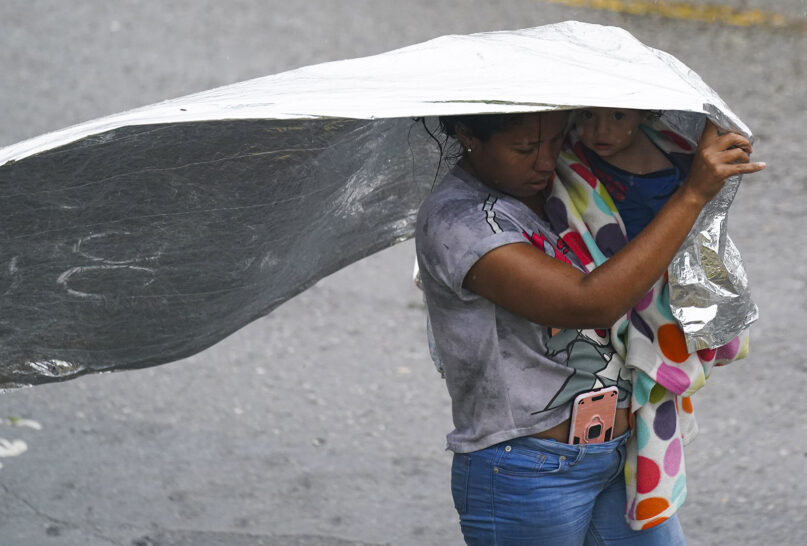WASHINGTON (RNS) — Faith-based refugee resettlement groups offered qualified praise for President Joe Biden amid news his administration plans to keep the annual refugee cap level at 125,000, maintaining the elevated ceiling while shifting quotas to allow more asylum-seekers from the Western Hemisphere.
“Resettling more families from our own hemisphere will be critical to maintaining our humanitarian leadership, building trust with regional partners, and reducing the need for vulnerable people to make the dangerous journey to the U.S. southern border,” Krish O’Mara Vignarajah, head of Lutheran Immigration and Refugee Service, said in a statement.
Proposed shifts that appeared in a draft report obtained by CNN will likely allow the U.S. government to take in more refugees from countries struggling politically and economically, such as Venezuela. Thousands of asylum-seekers from that country have appeared at the U.S.-Mexico border in recent months, many having endured treacherous journeys through the Darién Gap — the dangerous jungle region that separates North and South America.
A spokesperson for the U.S. Conference of Catholic Bishops noted that while the USCCB is still awaiting an official announcement regarding the refugee cap, which is set annually in advance of the Oct. 1 fiscal year start, it has already expressed support “for increased refugee resettlement from Latin America.”
Heads of the religious nonprofits, which constitute six of the nine organizations that partner with the federal government to resettle refugees in the U.S., were also quick to laud Biden’s recommitment to a refugee resettlement program that was gutted under former President Donald Trump.
The shift wasn’t immediate. Despite Biden telling a Jesuit group shortly after he was elected in 2020 that he would raise the refugee ceiling to 125,000, his administration initially kept Trump’s historically low cap of 15,000 in place upon taking office. But after blowback from faith-based refugee resettlement groups and other advocates, Biden raised the cap to 62,500 in the spring of 2021. The next year, he raised it again to the promised 125,000.
Even so, faith groups voiced concern as the U.S. again falls short of its resettlement goals.
“More important than where the refugee ceiling is set, however, is whether or not it will be reached,” Mark Hetfield, head of the refugee assistance organization HIAS, said in an email on Tuesday (Sept. 26). “In FY2023 the US will likely not even get half way to the ceiling. The Biden administration needs to finally reach that ceiling next year, as unused refugee slots evaporate every October 1.”
He added: “Each unfilled refugee slot represents a life needlessly left in danger.”
Matthew Soerens, vice president of advocacy and policy at World Relief, an evangelical Christian organization, told Religion News Service he estimates the U.S. will have resettled roughly 60,000 refugees over the past year.
That’s “a significant improvement over last year, but still less than half of the 125,000 ceiling,” he said, noting his organization had advocated for raising the ceiling to 135,000.
Vignarajah said she sees the new year as an opportunity for the Biden administration, couching it as “a transition from an aspirational target to a realistic expectation.”
For refugee families, she said, the help can’t come soon enough.
“We’ve seen as many regional admissions from Latin America and the Caribbean this year as the previous five fiscal years,” Vignarajah said. “While these figures themselves are compelling, they are even more so when we recognize that each admission represents a family reunited, a chance for kids to be kids again, and a dream of a safer, better life realized.”





